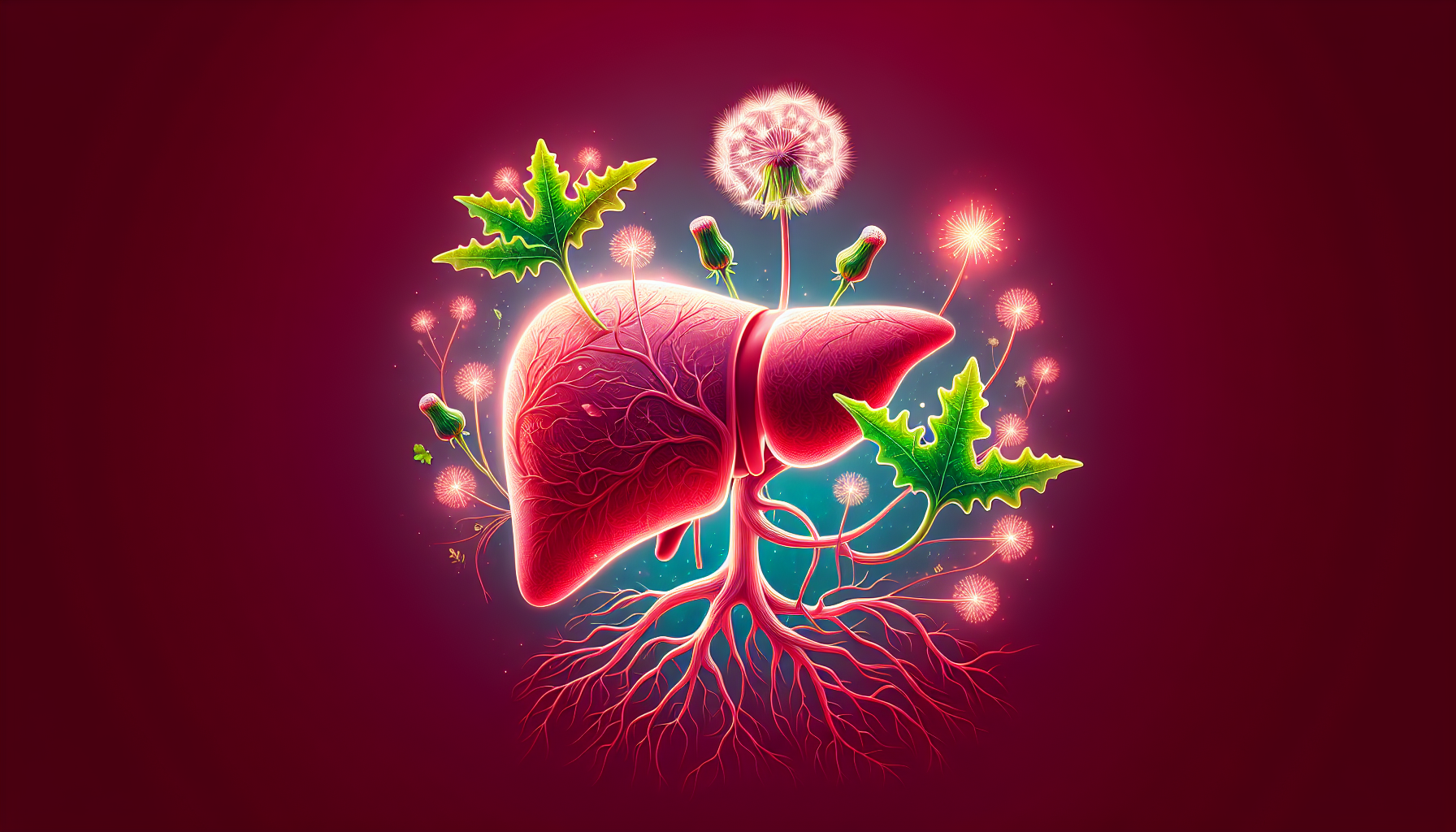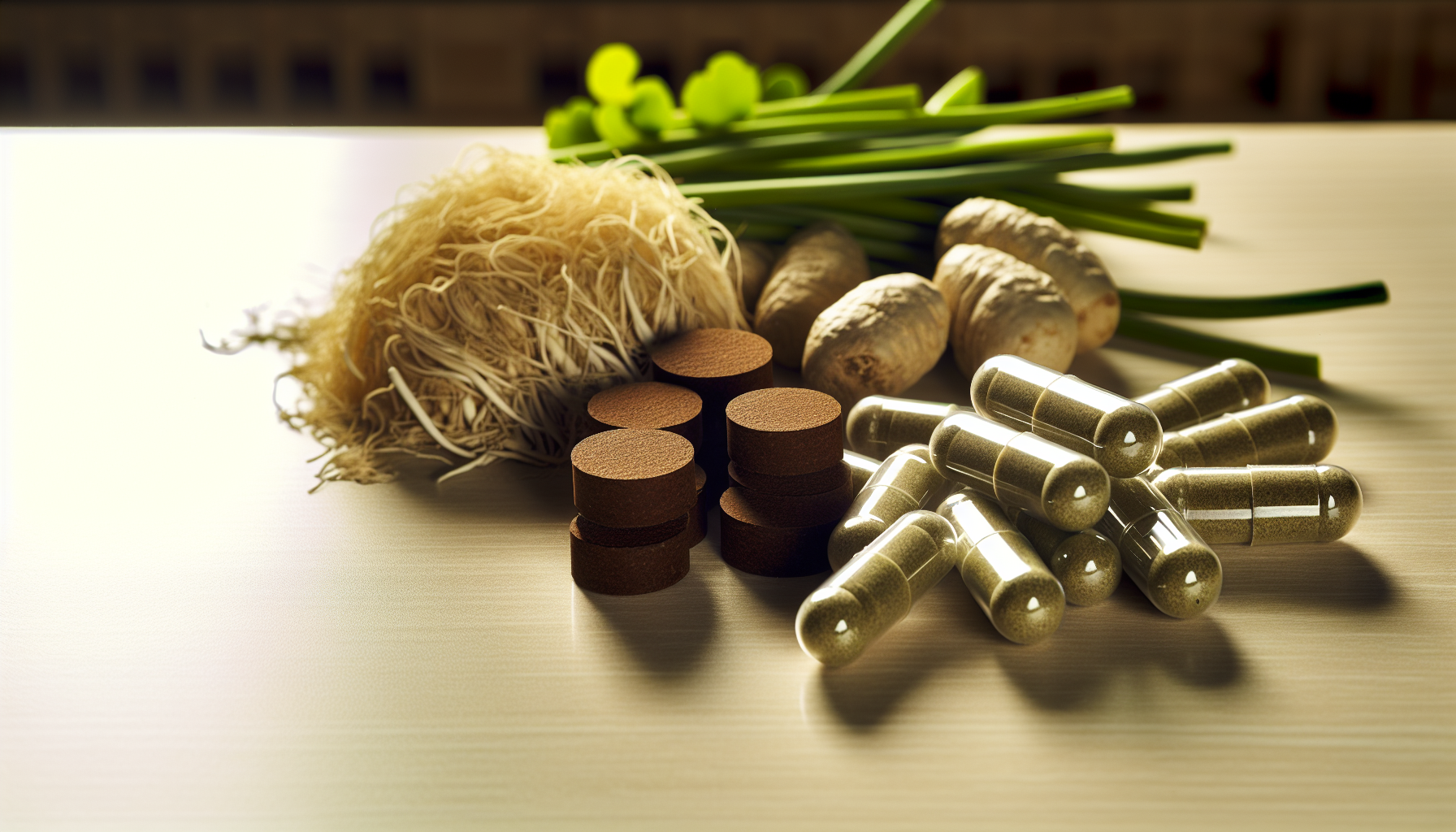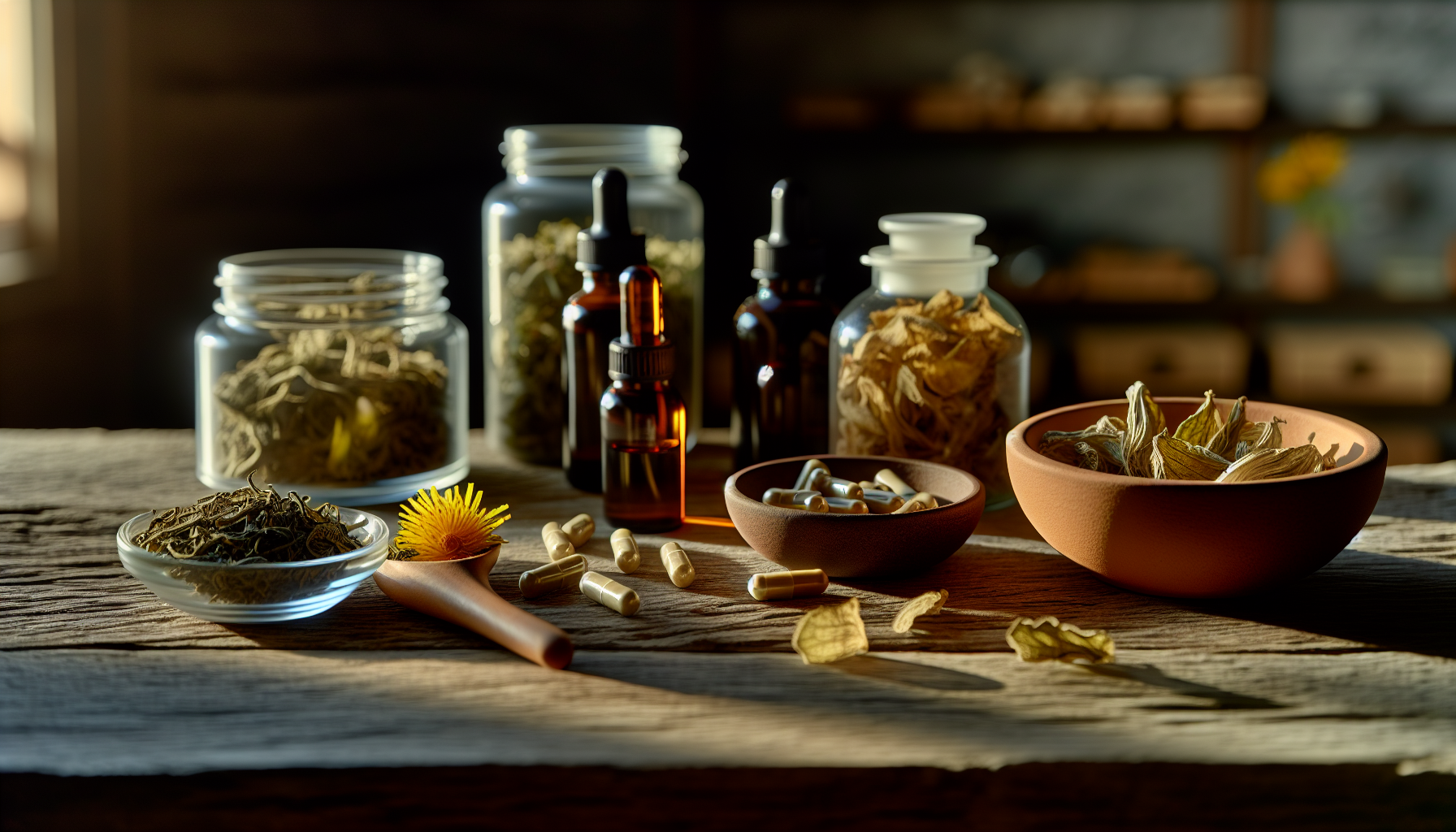In the vibrant world of natural remedies, the dandelion debate surrounding the effectiveness of dandelion root versus milk thistle for liver health has sparked considerable interest among those seeking to nurture their liver naturally. As two heralded champions in the world of traditional medicine, these flowering plants boast a rich lineage of use, not only for supporting liver function but also for their broad spectrum of health benefits. So, is dandelion root better than milk thistle?
Dandelion, often dismissed as a common weed, and milk thistle, admired for its regenerative properties, present an intriguing comparison. This article dives deep into the heart of this debate, dissecting the unique advantages each herb offers to liver health. With dandelion root known for promoting bile flow and enhancing detoxification and milk thistle celebrated for its potent antioxidant properties that protect and support the regeneration of new liver cells, the decision between them is not as clear-cut as one might think.
Our exploration is grounded in the latest research and traditional knowledge, aiming to shed light on how these natural remedies can support liver health, from mitigating the effects of conditions such as nonalcoholic fatty liver disease to improving overall liver and immune system function. The key takeaways from this comparison highlight not only the individual strengths of milk thistle and dandelion root in protecting liver cells, aiding in treating liver-related ailments and boosting antioxidant levels but also hint at the potential synergistic effects of combining these herbs. Whether you're drawn to the anti-inflammatory properties of dandelion or the liver-protective benefits of milk thistle, this article will provide a comprehensive understanding, enabling you to make an informed decision about incorporating these natural remedies into your daily routine. Let's embark on this journey together, exploring the rich tapestry of benefits these plants offer those seeking a healthier liver and, ultimately, a healthier life.
Key Takeaways
- Dandelion root and milk thistle have long histories in traditional medicine, with dandelion promoting bile flow and supporting liver function. In contrast, milk thistle aids liver regeneration and offers protection against liver-related ailments.
- Both herbs offer unique liver health benefits: milk thistle protects liver cells and supports liver disease treatment, and dandelion raises antioxidant levels, improves digestion, and aids bile secretion.
- Combining dandelion root and milk thistle could provide synergistic liver health benefits, improving detoxification, protecting liver cells from damage, and further supporting overall liver and immune system function.
Dandelion Root and Milk Thistle: Key Differences
Regarding natural remedies, dandelion root, and milk thistle are two herbs that have stood the test of time. Both have been used in traditional medicine for centuries, offering unique health benefits. But how do they compare, and which is better for liver health? It is time to examine these two medicinal powerhouses in detail.
Dandelion root, scientifically known as Taraxacum officinale, originates from Eurasia and has become widely naturalized in parts of the world, including North America. On the other hand, milk thistle, or Silybum marianum, hails from Europe and the Mediterranean region but has spread globally, including regions like North America and Australia.
Origins and Plant Parts
The origins of these two herbs paint a picture of their historical uses and significance. Milk thistle, also known as the milk thistle plant, has a long history, dating back to the 1st century when the Greeks used it. Today, it’s native to many regions, including Europe, and has spread to the United States, Africa, South America, Asia, and Australia.
On the other hand, dandelion root has a heritage rooted in traditional medicine as a liver tonic. It’s commonly found in North America and is native to Europe. Interestingly, the entire milk thistle plant is utilized, while the root is the primary part of the dandelion, which is beneficial for herbal remedies.
Active Ingredients
Considering the active ingredients, milk thistle and its counterpart pack a punch. Silymarin, found in milk thistle extract, is known for its antioxidant, anti-inflammatory, and antiviral properties. These properties make it a valuable component in traditional medicine. Its integral role in liver health manifests in its ability to mitigate damage from free radicals and shield the liver from specific toxins.
Dandelion root, on the other hand, is a powerhouse of antioxidants. Its active compounds, taraxacum officinale, beta-carotene, and hydroxycinnamic acid derivatives, contribute to healthy liver function and protection against oxidative stress.
Liver Health Benefits: Dandelion Root vs. Milk Thistle

Despite both herbs bolstering liver health, they differ substantially in their methods of supporting liver function. Milk thistle is celebrated for its liver regenerative properties, thanks to silymarin, while dandelion root enhances liver function by increasing bile secretion.
Milk thistle protects against liver ailments such as alcoholic liver disease, fatty liver disease, hepatitis, and liver cancer. It’s known to reduce liver inflammation and damage. In contrast, dandelion root bolsters liver health by lowering cholesterol levels and harnessing antimicrobial and antiviral properties that ward off liver infections.
Dandelion Root Benefits
Dandelion root is recognized for its many health benefits, including:
- Supporting healthy liver function
- Preventing oxidative stress
- Supporting the outer cell membrane structure of liver cells
- Being rich in chlorogenic acid, a potent antioxidant
- Providing hepatoprotective properties to maintain liver health
One of the critical benefits of dandelion root for liver health is its ability to stimulate bile flow. This aids digestion and the breakdown of fats, making it suitable for impaired bile secretion or propensity for bile stones.
Milk Thistle Benefits
Milk thistle shines in its ability to aid in treating liver diseases such as cirrhosis, jaundice, and hepatitis. Its active compound, silymarin, promotes liver cell regeneration and reduces inflammation.
Furthermore, milk thistle may contribute to healthier skin and lower insulin resistance, which is important for individuals with inflammatory skin conditions and fatty liver disease. Its anti-inflammatory and antioxidant properties support its traditional use in treating liver and gallbladder disorders, potentially managing symptoms like jaundice.
Complementary Effects of Combining Dandelion Root and Milk Thistle

While both herbs offer impressive benefits alone, combining dandelion root with milk thistle may provide complementary benefits for enhancing liver support. Some of the benefits of this combination include:
- Supporting liver detoxification
- Promoting healthy liver function
- Protecting liver cells from damage
- Supporting overall liver health
This combination can provide a broader range of liver health benefits, including protection against liver damage and support liver function. It is vital for liver support and nonalcoholic fatty liver disease prevention. By incorporating this combination into your daily routine, you can support liver health effectively.
A more profound exploration of these two herbs' combined, synergistic effects is in order.
Synergistic Liver Support
Together, dandelion root and milk thistle can provide all-encompassing support for the liver. Milk thistle’s active compound, silymarin, protects liver cells and stimulates protein synthesis, aiding in the repair of damaged liver tissue.
On the other hand, dandelion root enhances liver function by stimulating bile flow, aiding digestion, and breaking down fats. Using dandelion root and milk thistle together can address different aspects of liver health for enhanced support.
Other Health Benefits
Besides supporting liver health, the combination of dandelion root milk thistle offers many other health benefits. For instance, dandelion root contains inulin, a complex carbohydrate that promotes beneficial gut bacteria, and chicoric acid, which may have anti-diabetic properties by inhibiting carbohydrate-digesting enzymes.
Moreover, the combination may enhance immune system function and offer anti-inflammatory benefits through compounds such as taraxasterol (a triterpene found in dandelions). Additionally, dandelion root also contributes to:
- Bone and skin health
- Immune function
- Cholesterol management
- Blood sugar regulation
Choosing the Right Herb for Your Needs

Your choice between dandelion root and milk thistle should align with your unique health objectives. Whether you’re looking to:
- Improve digestion
- Boost liver cell protection
- Detoxify your body
- Support healthy skin
- Reduce inflammation
Each herb offers unique benefits that could cater to your specific needs.
For instance, milk thistle is particularly beneficial for those with liver disease or compromised liver function. It can be used in various forms, such as a green vegetable, a coffee substitute, or milk thistle tea.
Factors to Consider
Various factors merit consideration when selecting the herb that best suits your requirements. The specific liver health concerns you might have, your overall health conditions, and your familiarity with the historical uses of these herbs can all influence your decision.
For instance, if your primary concern is liver cell protection, you might opt for milk thistle because of its regenerative properties. However, if your goal is to improve digestion and bile secretion, dandelion root might be a better choice.
Seeking Professional Advice
Considering these herbs' potential interactions and risks, consulting a professional before using either is paramount. A healthcare provider can advise on possible interactions between milk thistle or dandelion root and other medications, considering the effect these herbs can have on the liver's metabolism of drugs.
Additionally, individuals with health conditions like bleeding disorders, allergies to ragweed-related plants, or those scheduled for surgery should seek professional advice due to the potential risks associated with dandelion root. A healthcare provider can also guide the optimal form of consumption for either herb, whether as a tincture, capsule, or tea, to match individual health needs and preferences.
Forms and Uses of Dandelion Root and Milk Thistle

If you contemplate integrating these herbs into your daily regimen, you can consume dandelion root and milk thistle in diverse forms, including dietary supplements, tea, and tincture. It’s advisable, however, to consult a healthcare provider before adding these herbs to your diet, especially to ensure the supplements are of high quality and free from unwanted additives.
Next, we’ll examine how these herbs can be consumed and integrated into daily routines.
Supplement Forms
The diverse forms of milk thistle and dandelion root supplements cater to various preferences and health needs. Milk thistle, renowned for its liver-protective properties and potent antioxidant capabilities, is widely available in capsule form, as a soothing tea, and as a potent tincture. Similarly, dandelion root, celebrated for its ability to promote bile flow and support liver health, can also be enjoyed as a dietary supplement, in tea form for a gentle detox, or as a tincture, offering a concentrated dose of its health benefits. Herbal practitioners often tailor advice on utilizing these supplements, including choosing alcohol-based or alcohol-free tinctures, ensuring a personalized approach to harnessing these herbs' regenerative and protective powers for liver health and beyond.
In our continued exploration of natural liver support, we've previously reviewed top supplements in the market, focusing on these two remarkable herbs. Our articles, “Beyond the Weed: The Stunning Health Benefits of The Best Dandelion Supplements” and “The 5 Best Milk Thistle Supplements - Ranked and Reviewed,” delve into the efficacy, purity, and overall value of five leading products for each herb. These reviews aim to guide readers through the vast array of options available, highlighting how each supplement stands out in supporting liver function, enhancing detoxification, and providing additional health benefits such as supporting healthy skin and aiding in weight loss. Below are the links to these insightful articles, essential resources for anyone looking to incorporate these natural remedies into their daily routine for improved liver health and wellness. 👇
Cooking and Daily Routine
If culinary experimentation is your thing, both herbs can be a fun addition to your kitchen exploits. Dandelion root can be used as a nutrient-dense food source, in addition to its therapeutic properties. The root can be prepared by:
- Washing
- Peeling
- Steaming or boiling
- Serving with a bit of salt, butter, and a splash of apple cider vinegar to enhance flavor.
Milk thistle seeds have a versatile flavor profile and can be used in various ways:
- As a coffee substitute
- Incorporated into savory dishes
- Ground into a seasoning salt with herbs and spices. This seasoning salt can be used on meats, potatoes, soups, marinades, and dressings for added nutritional value.
Summary
In the world of natural health, dandelion root and milk thistle stand out for their remarkable contributions to liver wellness. Milk thistle, with its silymarin-rich seeds, is lauded for its liver-protective and regenerative properties, effectively supporting the treatment of liver conditions such as fatty liver and cirrhosis. Dandelion root, on the other hand, excels in promoting healthy digestion, stimulating bile secretion, and enhancing the body's detoxification processes. These herbs, whether utilized separately or in tandem, offer a holistic approach to liver health, addressing a spectrum of liver-related issues from nonalcoholic fatty liver disease to general liver detoxification.
The choice between milk thistle and dandelion root—or the decision to combine them—should be informed by individual health objectives and the guidance of a healthcare professional, especially considering their potential to support not only liver function but also gallbladder health, reduce inflammation, and manage blood sugar levels. This journey towards optimal liver health is a long-term commitment, rewarding patients with improved well-being and resilience against liver damage.
To further enrich your understanding of these natural remedies, our article “Is It Safe To Take Dandelion Everyday? Health Benefits, Risks, and Side Effects” delves into the nuances of daily dandelion consumption. It explores the balance between the herb's vast health benefits, including its role as a potent antioxidant and mild laxative effect, against any potential risks or allergic reactions. This comprehensive analysis adds depth to our discussion on the dandelion root, equipping you with the knowledge to safely incorporate this powerful herb into your daily wellness routine and informing you about the health benefits, risks, and side effects of regular dandelion use. Check it out here. 👇
Frequently Asked Questions
Can you take milk thistle and dandelion root together?
You can take milk thistle and dandelion root together to promote liver function. There are no known interactions between the two.
Does dandelion root heal the liver?
Yes, preliminary research suggests that dandelion root may help improve liver and gallbladder function, and it is also used to improve digestion and act as a mild laxative.
How does milk thistle and dandelion help the liver?
Milk thistle contains silymarin, which has antioxidant and anti-inflammatory properties and can protect the liver from toxins and damage caused by certain drugs like acetaminophen (Tylenol).
What is the best form of dandelion to take?
The best form of dandelion is in capsules or powders, which are easy to consume and allow precise dosing.
What factors should I consider when choosing between dandelion root and milk thistle?
Consider your health goals and overall conditions when choosing between dandelion root and milk thistle. Also, take into account the historical uses of these herbs.
Thanks for taking this journey to explore the simple question: "Is Dandelion Root better than Milk Thistle?" We hope this discussion has helped clarify the benefits and uses of both. Also, if you want to add to your library of knowledge, you should check out the other articles mentioned and linked above. It never hurts to add to your knowledge arsenal!
Please return soon to check out our next review of another incredible supplement – we’re always looking out for YOU!
*We are NOT qualified medical advisors. The content here is only based on our personal opinions and should NOT be used as a substitute for a healthcare professional's advice!











Member discussion